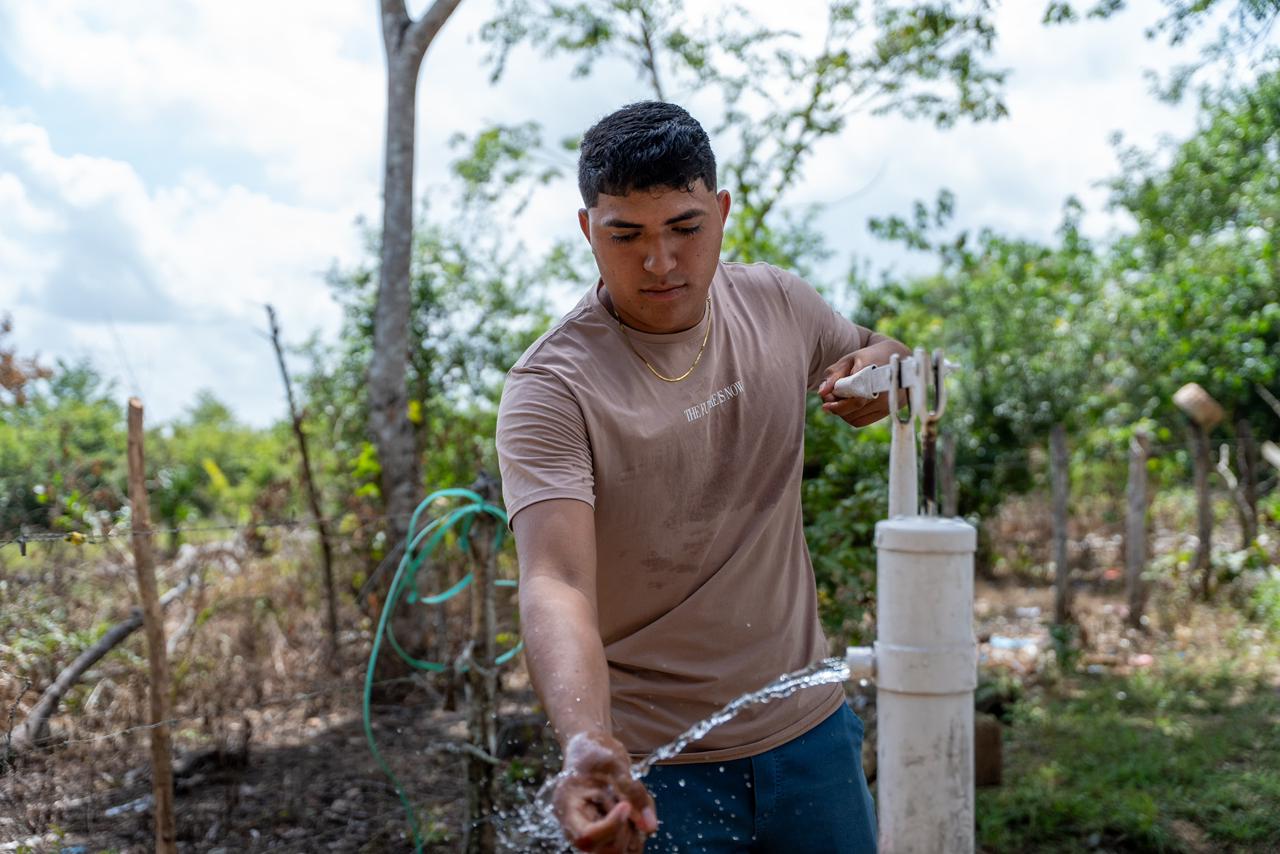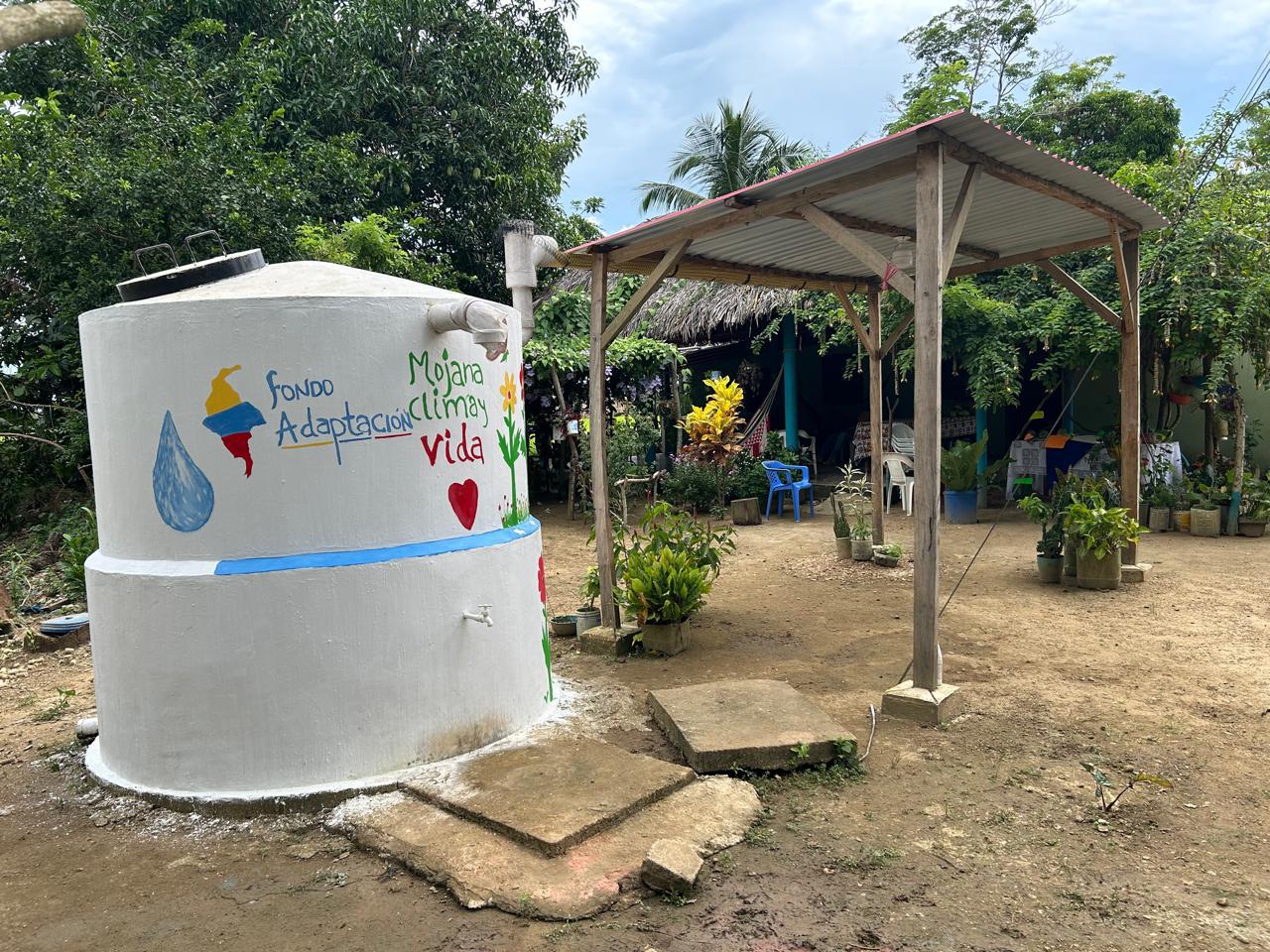More than a thousand rural families in La Mojana now have access to safe water thanks to rainwater harvesting systems.

In a new round of sustainable water solutions, the Adaptation Fund and the United Nations Development Programme (UNDP) installed 171 Rainwater Harvesting Systems (SICAL) in rural communities in the municipalities of Caimito and Sucre, in the department of Sucre. This intervention benefits more than a thousand people who now have access to safe water in their homes.
The solutions delivered are part of the Mojana, Climate and Life project, a partnership that since 2020 has sought to improve the subregion's resilience to the impacts of climate change , especially in remote areas without access to traditional water supplies.
The total investment in this agreement exceeds 160 billion pesos, of which more than 96 billion have already been spent.
The implementation of SICAL has been possible thanks to collaborative work with local authorities, community leaders, and grassroots social organizations , who have supported the process from identifying needs to training in the use and maintenance of the systems.
This local ownership has been key to ensuring the sustainability of solutions and empowering communities as protagonists of their own transformation.
Access to drinking water has historically been one of the greatest challenges for rural communities in La Mojana , a region highly vulnerable to climate variability, prolonged droughts, and flooding.
To address this challenge, SICAL systems capture and store rainwater: family devices have a capacity of up to 5,000 liters, while community devices reach 20,000 liters, allowing for use during periods of scarcity.

SICAL systems improve the health of people in the region. Photo: Courtesy.
Carlos Carrillo, manager of the Adaptation Fund, emphasized that this technology not only guarantees clean water for human consumption, but also protects the health of residents by reducing the risk of diseases transmitted by contaminated water.
"These measures represent not only a concrete improvement in the living conditions of rural populations in La Mojana, but also a tangible demonstration of resilience and social transformation in a region facing challenges in terms of climate change adaptation," Carrillo said.
In addition to the direct benefits to health and basic access, rainwater harvesting systems also free up time previously spent collecting water on long walks, especially for women and children .
Now, many families can dedicate that time to educational, productive, or caregiving activities, which contributes to the comprehensive development of communities.
Since the project began, 1,505 water solutions—1,412 family systems and 93 community systems—have been installed in the eleven municipalities that make up the ecoregion.
In addition, 43 micro-aqueduct infrastructure projects have been optimized, directly benefiting more than 31,000 people. In the municipality of Sucre alone, more than 13,400 people, nearly half of the rural population, have benefited thanks to an investment of more than 2.58 billion pesos.

SICAL system installed in a family home. Photo: Courtesy.
The communities impacted by this recent delivery include El Garzal, Caño de la Lata, and Las Iguanas. There, residents welcomed the systems with hope and commitment, aware that safe water not only improves their daily quality of life but also opens up opportunities for greater self-reliance, food security, and environmental well-being.
These types of nature-based solutions, which leverage local resources and strengthen community capacity, position La Mojana as a national example of sustainability and access to basic rights.
Likewise, in the context of the global climate crisis, these actions mark a viable path toward a more just, resilient, and secure future for the country's most vulnerable rural populations.
ANGELA MARÍA PÁEZ RODRÍGUEZ - SCHOOL OF MULTIMEDIA JOURNALISM EL TIEMPO.
eltiempo





